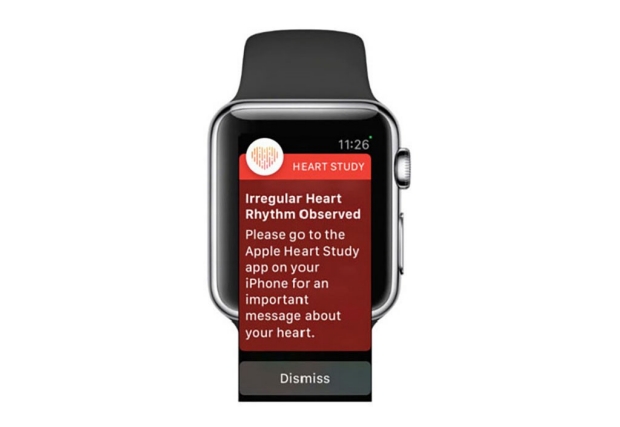

Stanford Medicine has published more information about the Apple Watch Heart Study program it conducted in partnership with Apple. The study aimed to reliably detect atrial fibrillation in Apple Watch users.
A clinical trial to determine whether a smartwatch app that analyzes pulse-rate data can screen for a heart-rhythm disorder has enrolled more than 400,000 participants.
Researchers at Stanford Medicine, in collaboration with Apple, launched the Apple Heart Study last November to determine whether a mobile app that uses the optical sensor on the Apple Watch to analyze pulse rate data can identify atrial fibrillation. The condition, which is characterized by an irregular heartbeat, often remains hidden because many people don’t experience symptoms. Atrial fibrillation can increase the risk of stroke and heart failure.
The study, which involved 400,000 participants, was the largest screening program for atrial fibrillation ever conducted.
The study was published on November 1, in the American Heart Journal describing the design of the clinical trial. Enrollment began in late 2017 and closed in August 2018. Although some participant had been notified in September that their study participation had come to an end, Stanford says it will continue to collect and collate data until early 2019.
“We hope this study will help us better understand how wearable technologies can inform precision health,” said Lloyd Minor, MD, dean of the School of Medicine. “These new tools, which have the potential to predict, prevent and manage disease, are finally within our reach.”
The Food and Drug Administration announced Sept. 11 that it had cleared two mobile medical apps designed by Apple to work on the Apple Watch. One app uses data from new hardware on the Apple Watch Series 4 to take an electrocardiogram by touching the button on the side of the device. The other app uses data from an optical sensor available on the Apple Watch Series 1 and later to analyze pulse data to identify irregular heart rhythms suggestive of atrial fibrillation and notify the user. The Apple Heart Study involves only this second app.
Each year in the United States, atrial fibrillation results in 130,000 deaths and 750,000 hospitalizations, according to the Centers for Disease Control and Prevention. The CDC estimates that the condition affects between 2.7 million and 6.1 million people. In addition, another 700,000 people may have undiagnosed atrial fibrillation.